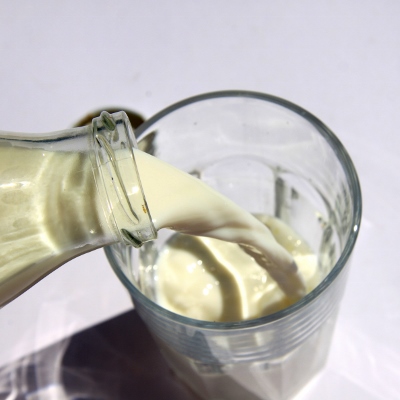 Many people are looking for an alternative to animal milk due to the hormones, a vegan diet, lactose intolerance, allergies, or the antibiotics found in most forms of dairy milk in the grocery stores. The alternatives, which are plant based, are all a little different in taste and texture, and they are all different in nutrients, too. To help unravel the mystery of what type of milk is the best alternative to dairy for you and your family, we’ll break down the differences for you.
Many people are looking for an alternative to animal milk due to the hormones, a vegan diet, lactose intolerance, allergies, or the antibiotics found in most forms of dairy milk in the grocery stores. The alternatives, which are plant based, are all a little different in taste and texture, and they are all different in nutrients, too. To help unravel the mystery of what type of milk is the best alternative to dairy for you and your family, we’ll break down the differences for you.
Soy Milk – Soy is the most popular milk, and it is similar to animal milk in protein and nutrients. It has approximately 10 grams of protein, and most often fortified with vitamins A, C, and D. It is made from soy beans, and if GMO’s are a concern you should look for non-GMO varieties.
Almond Milk – Almond milk has the closest texture to dairy milk, and is very flavorful. Like all nut milks, it is made simply from almonds and water. Some companies add sweetener to their almond milk, so be sure to check the label. Although almond milk is as high in protein as dairy milk, it is lower in many nutrients, so you may not want to use almond milk as a replacement for infants.
Rice Milk – For those with allergies, rice milk may be the best substitute as it is free of nuts, soy, and glutens. The watery texture isn’t very pleasing, and it is not recommended that it is used for baking for this reason. It is lower in protein and calcium than dairy milk, so if you decide to use rice milk as an alternative to dairy, do choose one that is fortified with calcium.
Coconut Milk – If you love whole milk, then coconut milk will be your best choice due to its creamy texture and flavor. Though it is high in saturated fats (5 grams per serving), it comes in at 20 calories lower in calories per cup compared to dairy milk. Also, a downside is that dairy milk has more than double the calcium of coconut milk. Be sure to take a calcium supplement if you choose this alternative, or buy a coconut milk that is calcium fortified.
Hemp Milk – Gaining in popularity, and becoming more available at local grocery stores, hemp milk is a good alternative for those with allergies because it is gluten, nut, and soy free. It is made from the seeds of the hemp plant, and though it is a great source of protein, it doesn’t have the amount of calcium of dairy milk. Many hemp milks have added sugar for flavor, so again, check the carton before purchasing.
There will be other up and coming milk alternatives hitting your supermarket soon like oat, potato, and sunflower milk. Carefully check the labels of these dairy milk alternatives if you decide to try them and compare the calories, sugar content, and calcium before making your decision.
(Photo courtesy of Gesine Kuhlmann)





